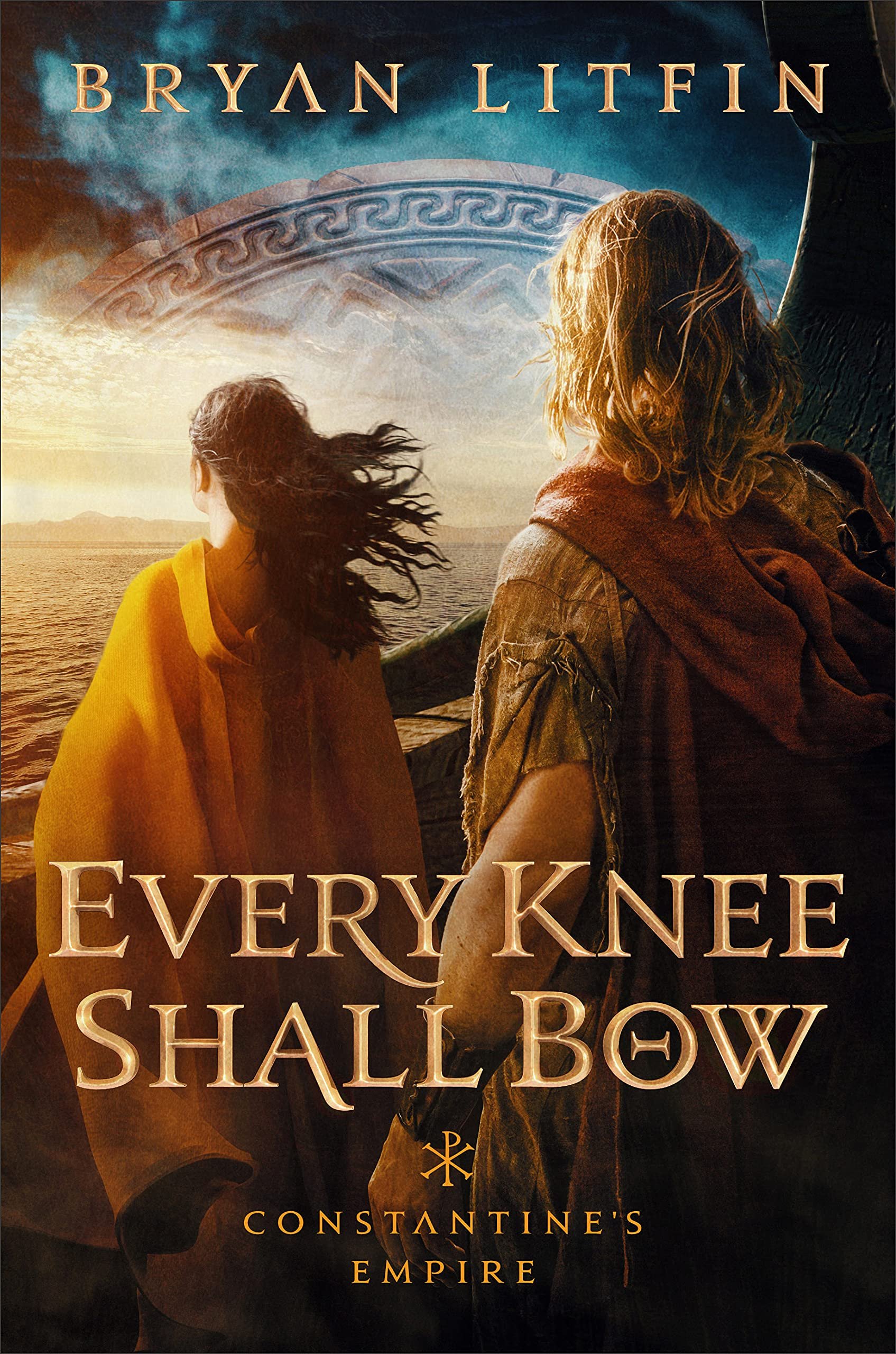Every Knee Shall Bow by Bryan Litfin
“The year is AD 316. Imperial persecution has ended, but Christianity’s future still hangs in the balance. Will churches rise in Rome where pagan temples once stood? ”
Every Knee Shall Bow captivates the imagination by transporting readers into the historic Roman world of the Imperial College contest, barbarian Germania, and the unapologetic beginnings of catholic Christianity.
Bottom line up front: buy it.
Christian and church leaders continue to examine the fractures in American Evangelicalism today. Pastors are leaving their churches at alarming speeds amid the fallout of a global pandemic, political estrangement, and racial deliberations. But the pulpit is not the only object with a vacancy sign. The pew is suffering as well. Barna Group shows an unprecedented amount of turmoil in American Evangelicalism which led Kinnaman to call our moment in history on par with Nazi Germany. Evangelical Christianity is under external and internal scrutiny.
I found that Every Knee Shall Bow offers a contemplative and enriching break from present ecclesiological confusion that frames our current moment against the early history of Christianity. While I can do without the book's predictable Christian romance, the time spent on this historical fiction hiatus was well worth it, and I think it will be for you too! I fully endorse this book, but I do so with the disclaimer that its content is for a mature audience as it includes: detailed warfare, sexuality, spiritual warfare, early theological disillusionment, and honest depictions of brutality.
General Overview
This is the second book in Bryan Litfin's three-book series titled Constantine’s Empire. The first book, The Conquerer, introduced Flavia, a wealthy Roman Senator's daughter, and Rex, the spectacular barbarian soldier. After being separated at the end of book I, Litfin brings the two love birds back together while revealing the unpleasant historical beginnings of Christianity immerging during a civil war crisis in the Roman Imperial College.
Rex and Flavia merge on a journey to elicit the help of Emperor Constantine to begin the most remarkable building project in the short history of Christianity. The Bishop of Rome, Pope Sylvester, entrusts them and others with this mission to solidify Christianity as Rome's religion and separate it from the previous pagan worship of the pantheon. But grand structures and physical buildings are not his only goal. He beseeches Constantine for funds to gather and combine all the Holy Scriptures and produce copies of the authoritative texts. And yet, not everyone claiming Christianity is for this campaign.
The prominent and handsome priest Felix, aligned with the Aegean sects, is determined not to allow the Roman Church to become the focal point of Christianity. Felix and his fellow followers hold to a Gnostic understanding of the scriptures. They will do all that is necessary, including aligning themselves to a skilled assassin, to route the Bishop's plans.
Historical Fiction
Dr. Litfin effortlessly weaves historical events, theology, and struggles of the church into the storyline of Every Knee Shall Bow. The reader will receive detailed historical accounts of the Imperial College debacle, early Christian theological differences, the canonicity of scripture, and civil war battles within Rome. Most importantly, Litfit's characters wrestle with the gospel of Jesus Christ in different ways.
Constantine struggles to understand human positional power and the gospel. Flavia wrestles with her convictions while loving a man who does not believe in the gospel. Rex struggles to understand God’s love and forgiveness in the gospel. Sylvester acknowledges God's eternal call to obedience and his equal grace in the gospel. Throughout the book, characters attempt to understand the early teaching of Christianity and how they intersect into their present reality.
Contextual Bridge
All good fiction brings the reader into another world so that they might think differently about their own. After reading Liftin’s winning work, I cannot help but consider what the mission of American Evangelicalism should be today? Some may make the mission appear to have more to do with political affiliation and legal legislation than spiritual formation and gospel proclamation. The early church practitioners sacrificed their lives, defying even the Emperor of Rome to defend the truths of the scriptures. While reading this book, I kept thinking, what is our present mission, how are we fighting for it, and who or what are we actually bending our knee?












